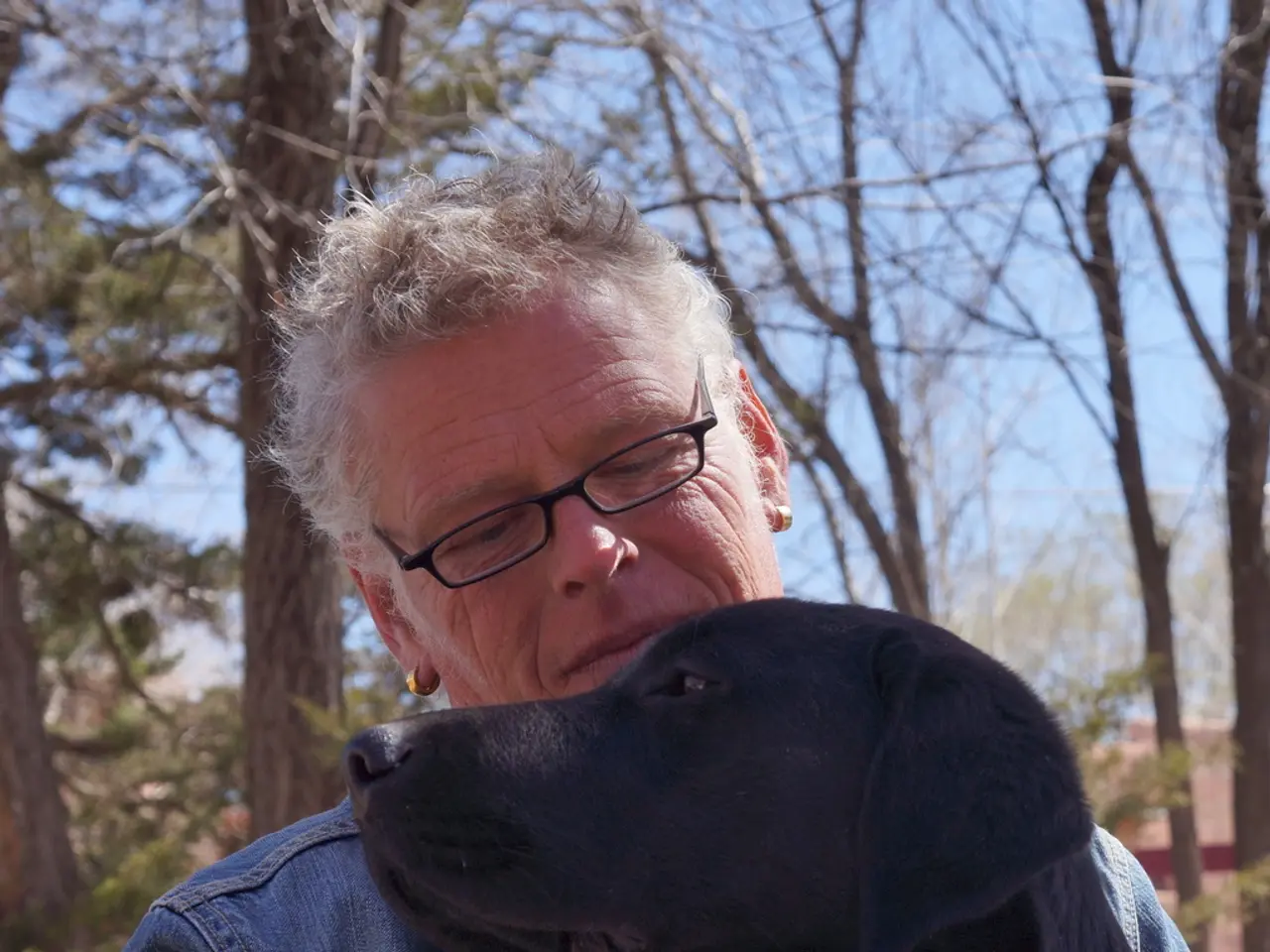Canine Senescence: Recognizing Advanced Age in Dogs and Strategies for Supporting Them
As our beloved canine companions age, it's essential to understand the changes they may experience and how to support them through this phase.
Aging Changes in Dogs
One of the most noticeable changes is going gray. This normal aging process usually starts around the muzzle but can also occur on the chest, neck, back, or legs. Typically, this process begins around 7 or 8 years of age, although it may happen later in life.
Weight Changes
Weight changes are common in older dogs. Their metabolism slows down, making it easier for them to gain weight. Consequently, they start to lay down fat at the expense of muscle. However, it's important to note that weight changes in older dogs are more prone to being unexplained than in younger dogs.
Healthy Snacks for Older Dogs
EcoKind Pet Treats Premium Yak Chew is a healthy snack option for dogs of all ages. Made with 100% Yak milk, these treats provide a nutritious and tasty treat for your senior dog.
Underlying Diseases
If you notice any concerning changes in your older dog, it's best to visit the vet. Many of these changes could be signs of underlying diseases. For instance, Canine Cognitive Dysfunction (CCD), also known as canine dementia, affects between 1 in 10 and 1 in 2 dogs over the age of 8. Symptoms of CCD include forgetfulness, anxiety, changes in behavior, and changes in sleep-wake pattern.
Canine Cognitive Dysfunction
CCD becomes more common as dogs age. To help manage this condition, keep your dog's brain active by playing games and giving food puzzles. Many dogs can improve with treatment using brain-boosting supplements.
Exercise and Arthritis
Older dogs may struggle more during exercise and get out of breath more quickly. This could be due to arthritis, which can cause dogs to become reluctant to exercise, leading to weight gain.
Diseases of Old Age
Many diseases of old age can cause weight loss in dogs. This could be due to chronic lung conditions, heart changes, anaemia, or pain and stiffness causing reduced mobility.
Lifespan of Dogs
The average lifespan of dogs varies by size and breed. Small breeds like the Lancashire Heeler have the highest median lifespan around 15 years, while medium and large breeds often live between 8 and 13 years. For example, small long-skulled breeds average about 13.3 years, Labrador Retrievers about 13.1 years, and large breeds generally tend to have shorter lifespans.
Appetite and Digestion
Weight changes in older dogs can also be due to less appetite and less efficient digestion, causing weight loss. It's important to monitor your dog's diet and consult with your vet if you notice any significant changes.
In conclusion, understanding the changes that occur in dogs as they age can help us provide the best care for them. Regular vet check-ups, a balanced diet, and keeping them mentally and physically active are key to ensuring a happy and healthy senior dog.
Read also:
- Peptide YY (PYY): Exploring its Role in Appetite Suppression, Intestinal Health, and Cognitive Links
- Toddler Health: Rotavirus Signs, Origins, and Potential Complications
- Digestive issues and heart discomfort: Root causes and associated health conditions
- House Infernos: Deadly Hazards Surpassing the Flames








